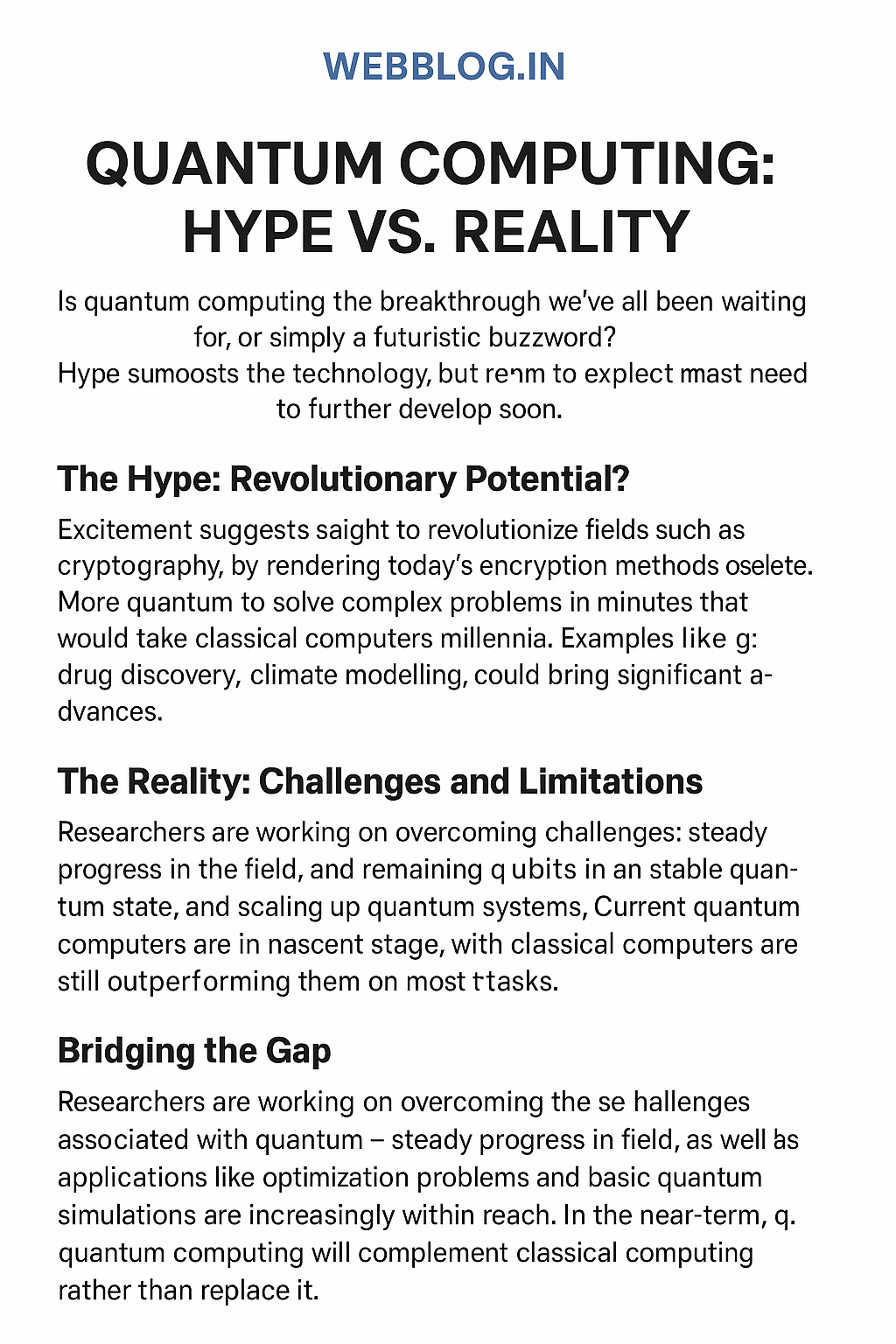In the world of technology, few topics have generated as much buzz as quantum computing. Often hailed as the next big leap in computational power, quantum computers promise to solve problems far beyond the reach of classical machines. But how much of this is grounded in reality, and how much is simply hype?
The Hype: A Quantum Leap in Computing
Quantum computing harnesses the principles of quantum mechanics—superposition, entanglement, and interference—to process information in ways that classical computers cannot. Tech giants like Google, IBM, and Microsoft, along with dozens of startups, have invested billions into developing quantum hardware.
The hype centers on possibilities like:
- Breaking modern encryption standards in seconds
- Modeling complex molecules for drug discovery
- Solving optimization problems for logistics and finance
- Advancing artificial intelligence with massive parallelism
The potential is real and vast—but it’s often misunderstood or exaggerated by media and marketers.
The Reality: We’re Still in the Early Days
Despite major progress, we’re still far from realizing the full promise of quantum computing. Most current quantum machines—like IBM’s and Google’s—have fewer than 500 qubits and are highly error-prone. Challenges include:
- Qubit stability (quantum decoherence)
- Error correction and fault-tolerant architectures
- Scalability and cost
In truth, today’s quantum computers are not yet powerful enough to outperform classical supercomputers on most tasks. Most commercial uses today are experimental or hybrid systems where quantum tools assist, not replace, classical systems.
Bridging the Gap
Researchers are optimistic about quantum computing’s long-term future. Governments and private companies continue investing in R&D. Promising areas where quantum computers may show near-term impact include:
- Quantum simulation in chemistry and physics
- Machine learning acceleration
- Cryptography (both offensive and defensive)
Still, it could take 10 to 20 years before we see scalable, fault-tolerant quantum computers solving practical problems at scale.
Final Thoughts
Quantum computing is one of the most exciting frontiers in tech—but it’s important to separate reality from hype. While breakthroughs are coming, we must temper our expectations and invest wisely in realistic milestones.
For now, quantum computing is best viewed not as a replacement for classical computing, but as a powerful companion—one that may eventually change the digital world as we know it.





